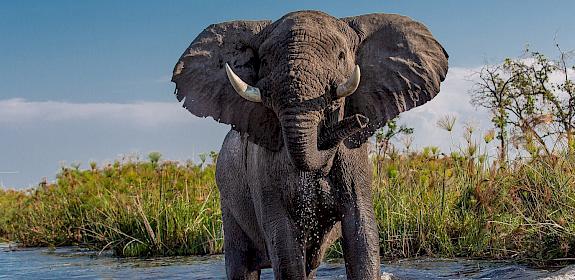Consumers beware: is your pet legal?
Cambridge, UK, 10th December 2012—Consumers buying pets should be aware of a new phenomenon, whereby the animals on sale are actually illegally sourced from the wild rather than legally captive bred.

In recent years, TRAFFIC has been gathering evidence of the laundering of animals collected from the wild, but declared as “bred in captivity” to evade international regulatory controls such as CITES (the Convention on International Trade in Endangered Species of Wild Fauna and Flora).
Many of the animal species are popular as pets, including tortoises, turtles, birds, frogs, lizards, snakes and some mammals.
Examples include Horsfield’s Tortoise Testudo horsfieldii and the Spiny Turtle Heosemys spinosa, both classified by IUCN as threatened with extinction in the wild.
Following an EU ban on imports of wild Horsfield’s Tortoises, more than 40,000 reportedly captive-bred tortoises were exported from the Ukraine to the EU between 2000 and 2006, despite no history of such trade prior to the ban.
In Germany, a consignment including 119 Green Tree Pythons Morelia viridis destined for the pet trade was confiscated after expert investigation revealed the presence of ticks and mites more closely associated with animals found in the wild than in captivity.
Last month, a criminal gang in The Netherlands was arrested because of concerns over the origin of hundreds of animals including tortoises and birds found on their premises.
Such cases are all indicative of the ongoing laundering of wild-caught animals into legal trade.
To help raise awareness of the growing phenomenon, TRAFFIC has compiled a short illustrated publication detailing a number of such examples, based on analysis of trade data.
The leaflet will be distributed to help consumers make informed choices about animals they intend to buy and to ask the right questions of the retailers.
“Anyone thinking of buying a pet this Christmas should first consider whether it could have been sourced from the wild, and if in any doubt, should contact their national CITES management authority for advice,” said Vicki Crook, Programme Officer for TRAFFIC Europe.
Each government that becomes a Party to CITES designates both Scientific and Management Authorities to apply the rules of the Convention. Contact information for these authorities can be found on the CITES website.
“Most responsible pet owners would be devastated if they discovered they had inadvertently supported wildlife crime or that their purchase had helped make a wild animal more threatened in its natural habitat,” said Crook.
“Purchasers’ concern creates a powerful incentive for suppliers to ensure they have evidence their animals for sale are legally sourced.”
Have you seen animals for sale and suspect the seller/breeder may not be declaring their true origin? If so, please contact TRAFFIC.




